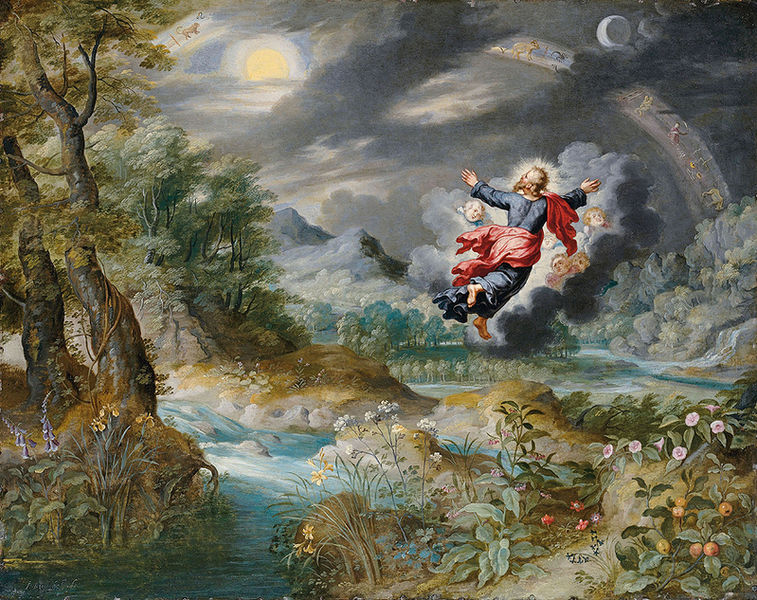

"According to some views, certain rights derive from God or Nature" --Wikipedia
The word "right" was in some way hijacked by the "bad guys" -- those who see themselves as being "right" by merit of being more powerful than everyone else. Originally, but to an extent to this date, the word right was mostly associated with laws that protect the public from those with too much power. Phrases like "rights holder" probably diluted the word "right" in the same way that the word "open" got misused in many ways (we covered this a lot in the past). One might argue that the word "free" came to mean inexpensive and "freedom" now means deregulation (i.e. more power to those already in power), so when Dr. Richard Stallman told me that the name "Techrights" would not be clever -- arguing that "rights" is a loaded term -- I went with that name anyway. That name was actually proposed by our Web host, Tracy. By the way, Stallman will be on a future episode of TechBytes, as soon as we get everything sorted out. The subject of consultation regarding name can be brought up there.
"Companies do not have rights, people do."Patents are sometimes said to fall under "intellectual property rights" (IPR), which is funny because a site with "rights"in its name actually goes against many of those so-called 'rights', alleging instead that it is the right of inventors to do their work without reading patent applications and the right of citizens everywhere not to pay tax to companies in other countries that had nothing to actually offer other than pieces of paper. What we find in some of those sound bytes that contain "rights" in them is that just as "freedom" came to mean deregulation (e.g. "free market"), rights came to mean something that actually harms real rights of citizens. It's all PR-speak and we need to take back our vocabulary, even if the path there is a tad abrasive. Companies do not have rights, people do. ⬆
Comments
twitter
2011-06-28 01:36:29
The easy way to undo the injustice of non free software is to undo state protection for it and that protection has always been on shaky ground. One of the cases that established copyright protection for binary files was Lotus vrs someone who claimed to be a Soviet agent cracking and distributing non free software with explicit goal of ruining the business. As copyright is supposed to protect human expressions, it can be argued that only the source code should enjoy copyright protection. The binaries are limited and can't be understood, much less trusted, and will never enter the public domain. Enlarging the public domain is the reason copyright exists. The establishment of patent protection for software is even more absurd and thankfully it is being dismantled. In the mean time, all of us lose our natural right to copy and share files as well as to make our computers do what we want them to. This is to great a price to pay simply to make Bill Gates the richest man in the world and employ a few hundred thousand poorly treated employees. The exercise is unjust from concept to result. Governments should stop purchasing, using and protecting non free software. Only human expressions that can be shared deserve the protections copyright has to offer.
Dr. Roy Schestowitz
2011-06-28 07:22:31
twitter
2011-06-30 07:18:08
NotZed
2011-06-27 23:30:16
Taxes are necessary to lubricate an efficient society - without them you are left with an inefficient and barely functioning one. Just look at any developing country you care to think of, or to be blunt - the USA. They might be wasted and misspent but things are completely rooted without them. For one extant example, Greece is mostly in its current mess because taxes weren't collected properly on those wealthy enough to get away with it.
The pernicious private rent extraction you and many others always call a 'tax' is merely a form of wealth distribution - from the many to the few. It has no benefit to society whatsoever, nor can it ever by definition.
And unfortunately the courts would disagree with your final statement. Corporations clearly have rights that exceed those of citizens. About the only 'right' a citizen of a western country has is to refuse to purchase a given companies products, but even that has been diluted - in some cases you can't even be a functioning member of society without paying some foreign or local self-proclaimed supra-citizen their tribute (e.g. to access the media required to be an informed citizen). And in any event is a very weak right when the media is playing for `the other side', and against the ever-increasing concentration of ownership. How can you boycott a company that owns everything or gets a cut of everything, and you don't even know it?
twitter
2011-06-28 01:12:30
You should not be so defeatist about changing laws to liberate people. The power companies have over you is reason to resist, not to give up.
Dr. Roy Schestowitz
2011-06-28 07:21:03
Needs Sunlight
2011-06-27 13:58:29
Dr. Roy Schestowitz
2011-06-28 07:19:03
rpgray
2011-06-27 16:34:31
I would also like to address another issue you raise. The term “free market” itself has become hijacked. It has become hijacked by people who equate it with everything from neo-colonialism to bank bailouts to - , yes, support for intellectual property. None of these are present in a true free market system. In a true free market the government simply gets out of the way of any voluntary interaction between or among individuals. A growing number of free market thinkers are rejecting the idea of intellectual property – including software patents.
Sincerely,
rpgray
Dr. Roy Schestowitz
2011-06-28 07:20:10